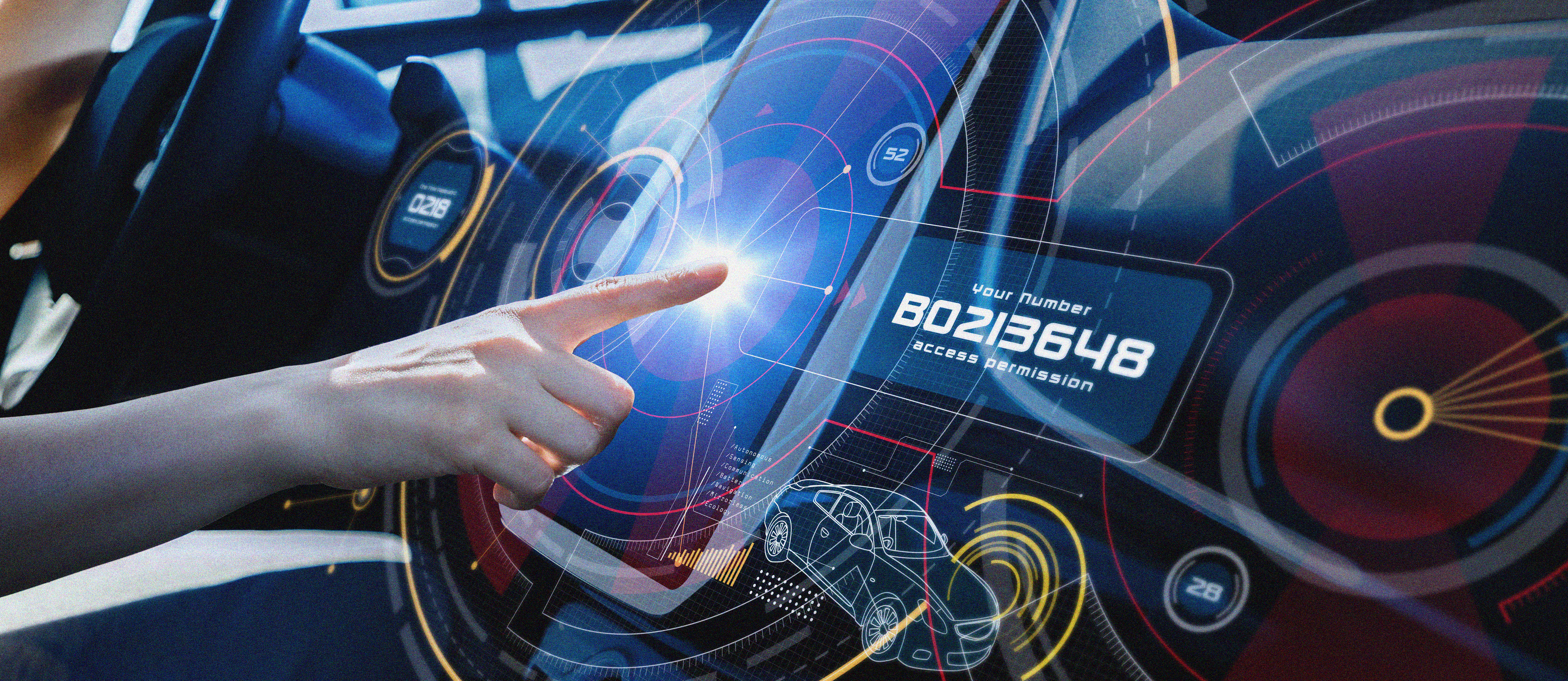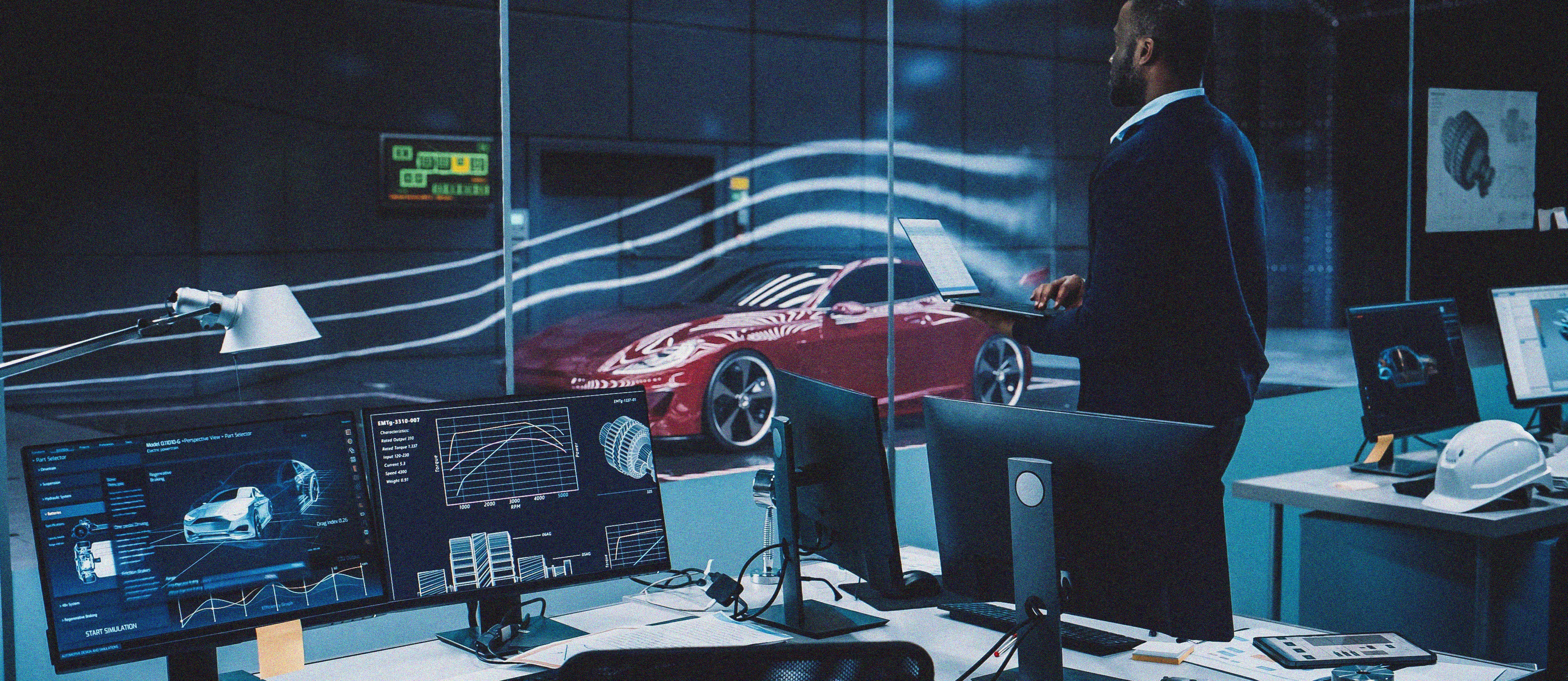Wheels of Change: Mechanical Marvels vs. Software-Defined Vehicles
The automotive industry has a history spanning over a century, originating in the second half of the 19th century. However, the concept of mobility has been around since the early days of civilisation, evolving gradually (but quite slowly) over time with the automotive industry being one entity addressing its needs. The automotive industry used to progress in the same manner, at a very slow pace, until recently. It focused on steady improvements, optimizations, and the application of new (but limited) technological innovations, primarily addressing the mechanical perspective of transporting someone safely and comfortably from point A to point B.
While the core question remains a primary topic, how to move from one place to another in a safe and comfortable way, it is now often extended with considerations of entertainment, sustainability, and ecology. Mechanical improvements alone are no longer sufficient to handle these new aspects or enhance the old ones – thus software has become a vital part of every modern vehicle.
But software in vehicles didn't get there yesterday...
Although software and electronics have been a part of almost every vehicle since the 1980s, it took decades for vehicles to run complex software programs similar to those on our computers and smartphones. Several reasons contributed to this, ranging from the complexity and cost of hardware needed to run sophisticated software to the fact that traditional automotive companies were primarily manufacturers, not IT companies. And therefore sometimes lacked a vision that could have been unleashed by fully understanding the potential of information technologies.

With an increase in regulations and limitations in mechanical advancements, electronics powered by complex software solutions opened new ways for addressing challenges. Innovations and cost reductions in the field of electric vehicles (with a focus on battery technology) in the late 2000s paved the way for a revolutionary change in the industry – the most significant one in its entire history.
Besides having a huge positive ecological impact, electric vehicles (EVs) overcame a crucial obstacle faced by internal combustion engine (ICE) vehicles, which is power consumption limitations. With their substantial batteries, power consumption ceased to be an issue, allowing manufacturers to approach problems differently and incorporate significantly more powerful electronic devices into vehicles. This explains the simultaneous explosion of electronic usage in vehicles with the rise of EVs.
User expectations have changed drastically in the last decade
However, the changes aren't only about regulations and technology; there's been a shift in user expectations and perspectives over the last decade. Credit for this shift goes mostly to the IT industry, where innovations over the last few decades have completely transformed our lifestyles. The widespread use of smartphones in the late 2000s has been a significant catalyst for this change.
It's no longer sufficient to provide basic features like terrestrial radio or navigation as user-oriented features in vehicles. Users now expect seamless integration with their digital lives and daily-used services. Their expectations have grown, wanting more than what they've been given for decades, and they want it NOW.
Full self-driving vehicle capability, once a technology gets stable and completely production-ready, is probably a variable that could change the industry in a super-quick manner even more drastically, but more importantly the entire concept of mobility – in the same way smartphones changed the IT industry some time ago, but also our life.
Moreover, the user perspective on the aftersales phase of a vehicle is changing. While most users are still willing to invest in regular maintenance, they expect efficiency, speed, and the addition of new values and features to the vehicle regularly, similar to how smartphone updates occur. In other words, they don't want to be stuck with the same product throughout its entire lifecycle; upgrades are expected, and car manufacturers embracing this trend gain a significant advantage in attracting new clients.

Are car manufacturers becoming IT companies?
There are so many different aspects today that are being addressed or need to be addressed by the industry, more than it has been in the entire 20th century. That is also why the boom of electric vehicles has brought significant changes, with many new players entering the game.
Tesla, as a pioneer in EV mass production, leads the pack and shows how an automotive company can actually lean more towards being an IT company than a pure car manufacturer. But, it's not only Tesla, many others see the same opportunity and are ready to play an important role in this game. China as an automotive market is really strong and the place to be nowadays for many manufacturers, which was unimaginable a decade ago. What is more important to note is that there are several Chinese brands (BYD, NIO, XPeng, etc.) that are growing rapidly, not because of the lower price of their products as some would assume, but firstly because of innovation and advanced technology that they have been introducing to the market.
On the other hand, traditional car brands are grappling with transitioning from pure manufacturing to a hybrid IT-manufacturing model.
It's crucial to understand that this isn't an easy task – changing the nature of business and processes that have worked well for decades (or even an entire century) into something significantly different, especially when it comes to incorporating aspects like software development and integration that were not part of their business until recently.
On the other side, for new companies starting from scratch with an IT mindset, reaching the level of craftsmanship of these "old" manufacturers is quite challenging. Making even simple stuff work flawlessly, such as the vehicle's doors closing smoothly or preserving the look and feel of interior elements for years after delivery is harder than one might think - decades of previous vehicle manufacturing and designing experience can clearly be seen here.
The question boils down to what users actually want. Do they prioritise feature-rich cars and having, for example, the ability to pre-heat the car or self-driving capabilities, or do they lean towards craftsmanship excellence that stands out during everyday usage?
It might be a bit oversimplified, but the point is clear. Users will increasingly want something that falls within these two categories to justify their investment. They will move more and more away from brands that are not able to be among leaders in one of these two segments unless it is justified with a significant price advantage.

How do we see it?
We find ourselves in the middle of a "battle," with new players looking for a piece of the market and old players striving to maintain their share. However, the cake isn't growing anywhere near as fast as new players are entering the market. One thing is certain – cards and positions will reshuffle in the upcoming years; the industry will undoubtedly not be the same as before.
Electric vehicles are taking over, and internal combustion engine (ICE) vehicles will become history. It's not a matter of if it will happen, but when. With that said, some well-known brands today will either cease to exist or undergo drastic changes in the next decade(s) due to their inability to keep up with the pace or have an adequate vision of the vehicle of the future – the software-defined vehicle.
At Reeinvent, we consider AI and connectivity to be crucial aspects of the journey toward a software-defined vehicle. That's why we closely collaborate with our partners in the automotive industry to bring new values to the market by embracing the advantages and potential of these technologies. If you would like to know more, reach out to us. We would be glad to engage in a discussion on this matter with you.
